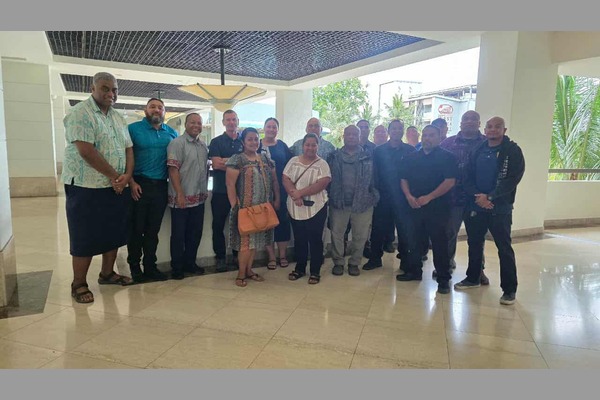Immigration representatives from Palau, Federated States of Micronesia (FSM) and the Republic of the Marshall Islands (RMI) gathered for the highly anticipated Northern Pacific Immigration Core Elements (ICE) Advanced Intelligence course from the 26th – 29th August, 2025 at the Palasia Hotel in Koror, Palau. The immigration intelligence specific course was
co-hosted by the Pacific Immigration Development Community (PIDC), and the United Nations Office on Drugs and Crimes (UNODC) with technical expert support from Immigration New Zealand (INZ).
Building upon the learning model of the INZ Immigration Hakili Matagi ICE framework, the advanced intelligence training has been designed to enhance the knowledge and capabilities of immigration intelligence professionals and more importantly to: (i) Strenghen immigration intelligence expertise and leadership at the national level in Palau, FSM
and RMI; (ii) Assist Palau, FSM, and RMI to detect, measure, investigate and prevent the use of identity crime at their borders and thereby reduce identity crime by third country nationals in the Pacific region; and (iii) Support and participate in
regional information sharing.
Identity crime continues to be used in a variety of ways such as illegal migration, people smuggling, human trafficking, money laundering, drug trafficking and is inextricably linked to transnational organised crime. Globally with the advancements made on Artifical Intelligence, identity crimes has become increasingly more sophisticated. This has
subsequently challenged immigration agencies across the Pacific to keep abreast of illegal identity crimes through the development of mechanisms to detect, measure, investigate and prevent identity crime.
In opening the intelligence course, Director of the Palau Bureau of Customs and Border Protection, Mr. John Tarkong reiterated that the northern Pacific immigration intelligence training has been geared to supporting Palau, FSM and RMI strengthen local immigration expertise and establish domestic mechanisms that can effectively enable reliable information sharing within immigration agencies domestically and regionally across the immigration network in the Pacific. The four-day Advanced Intelligence Training emphasises a shared commitment to elevating domestic intelligence capability and a collective regional preparedness and strengthening of collaborative responses to emerging immigration border control related challenges.

